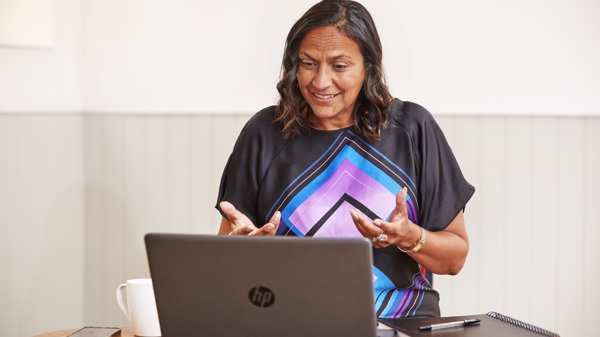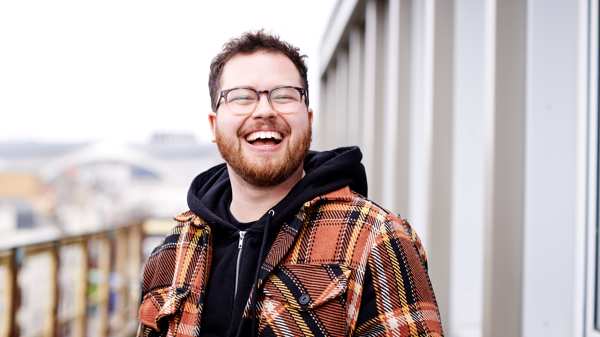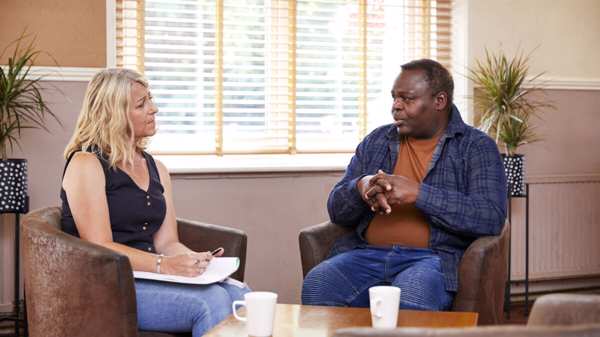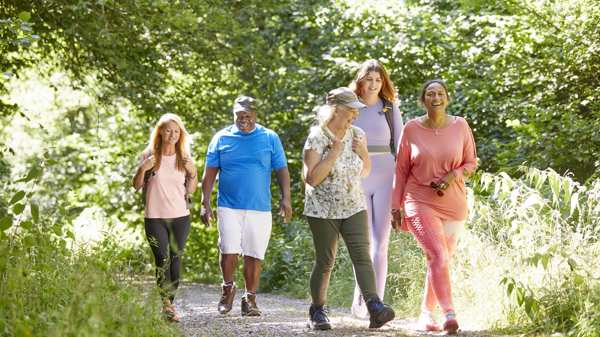Brighton & Hove LGBT Switchboard work with some of the most vulnerable people in our society through their specialist social prescribing service. We spoke to the charity’s social prescriber, Reuben, who works with two groups - TNBI (trans, non-binary and intersex) people and LGBTQ+ (lesbian, gay, bisexual, trans and queer) people with MRAS (migrant, refugee and asylum-seeker) experience. That’s a lot of acronyms, but they represent incredibly important work.
TNBI and MRAS LGBTQ+ people are particularly vulnerable. They face disadvantages and discrimination in all areas of life, including medical services, mental health, education, the workplace, and social connection.
Switchboard has existed since the mid-1970s, originally starting as a helpline for the LGBTQ+ community. The helpline still operates today. Switchboard are based in the city with the highest per capita population of trans people in the country, and work alongside other LGBTQ+ services and mainstream services to link clients to the best care and support possible. The charity’s social prescribing services are, as far as they know, unique in the UK, and are funded by NHS England via Together Co Brighton, a charity that brings together third sector organisations to offer social prescribing to hard-to-reach community groups. Groups like these critically need more support, and more professionals need training in this area.
The most common themes of one-to-one social prescribing sessions Reuben offers are around mental health, wellbeing, housing, social isolation, asylum matters, food instability/poverty and accessing gender-affirming medical care. Whilst many of these themes are seen throughout the population, LGBTQ+ people have often experienced discrimination which impacts on levels of trust in organisations outside the LGBTQ+ community. LGBTQ+ people with MRAS experience face the same issues as other queer people, but it’s important to add racism, trauma, language barriers, separation from support networks and an uncertain political climate for refugees to provide the full picture of the challenges before them. Reuben connects with clients in a range of ways: phone calls, video calls, office visits, meeting out in the community and home visits. The work together may be short-term, just a couple of emails, or for a much longer period of time.
Service users most commonly find their way to Reuben via self-referral, partner organisations and through the Switchboard helpline. Reuben meets his clients where they feel comfortable; often this means out in the community or at Switchboard’s office. “We can meet people where they feel comfortable and emphasise that we are a ‘by and for’ LGBTQ+ service, which helps reassure clients who have had poor experiences in other services to feel accepted, seen and understood,” says Reuben.
What can you do to help the LGBTQ+ people you work with? Reuben has some tips.
“To start with, familiarise yourself with basic queer terminology,” he says. “Your clients are not there to give you a trans 101 lesson, so get yourself online. There are several great lists of terms, but here’s one from the campaigning charity Stonewall - https://www.stonewall.org.uk/list-lgbtq-terms. Once you’ve read that, have a look at what LGBTQ+ training is available in your area. Many charities rely on income from training sessions to fund their community provision, so you’ll be learning and supporting your future clients too. Why not show your new-found awareness by adding your pronouns (he/him, she/her, they/them, ze/zim etc.) to your email signature? Or stick a Progress Pride flag sticker on your laptop - it might just be some pretty colours to some, but it’s an important symbol of inclusion and acceptance to others. Finally,” adds Reuben, “have a think about where LGBTQ+ services are in your local area - is there a queer café, a Facebook group or grassroots organisation you could work alongside?"
“Whatever way you decide to express appreciation for LGBTQ+ History Month, please remember the queer people that came before us - Section 28, the AIDS epidemic, five-year waiting lists for gender-affirming care, and systemic LGBTQ+-phobia, which continues to impact our country today. The fight for queer liberation did not end with marriage equality and together we can create a more LGBTQ+-inclusive world that benefits everybody.”







